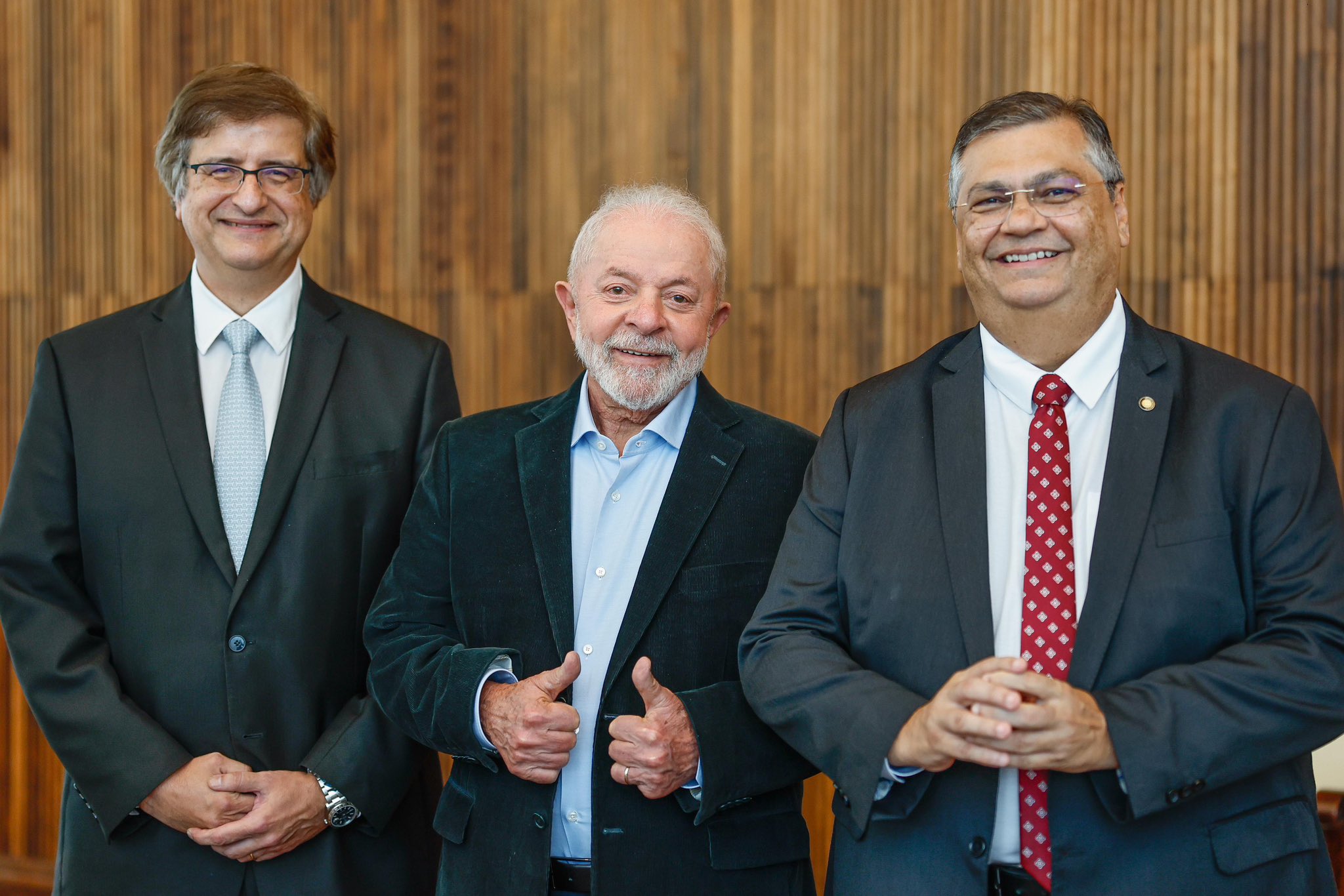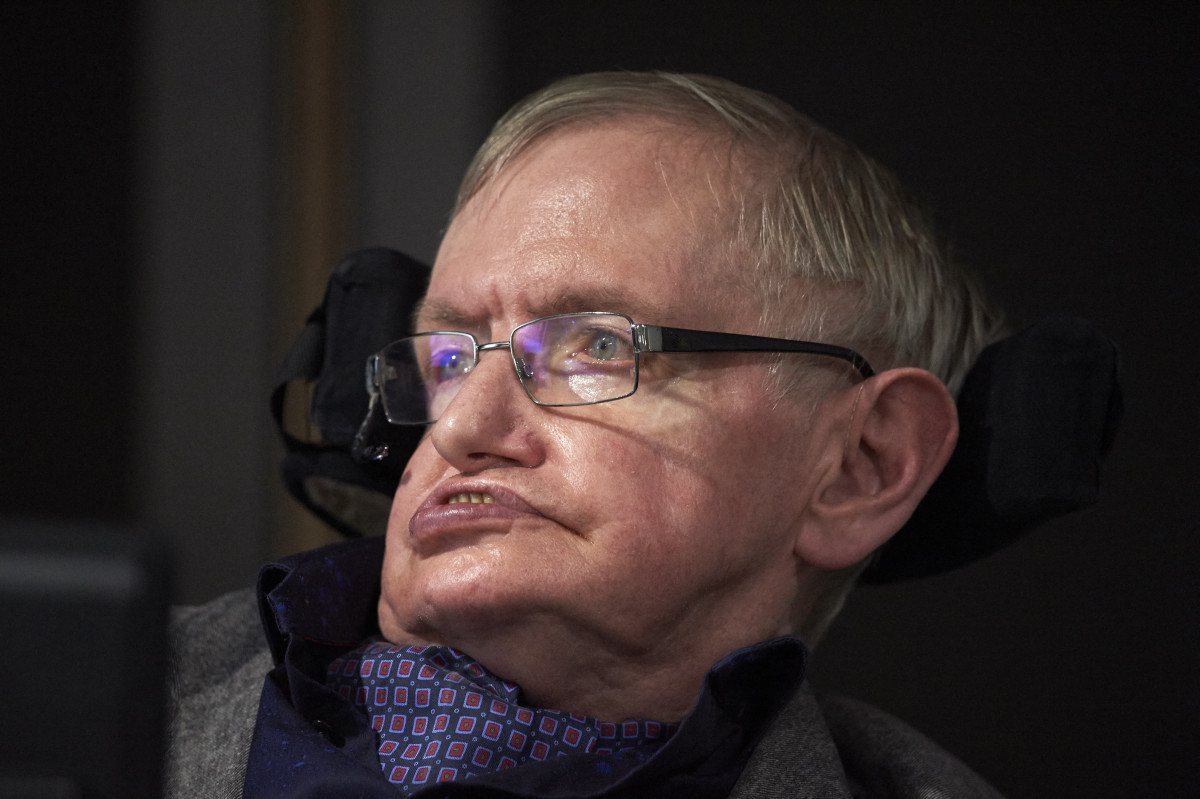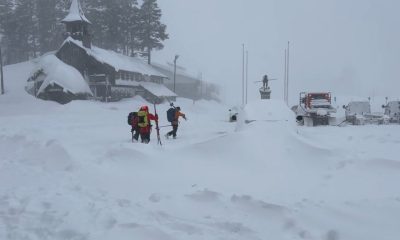International
President of Brazil proposes new judge for the Supreme Court

November 28 |
The president of Brazil, Luiz Inácio Lula da Silva, sent this Monday to the president of the Federal Senate, the candidacies of Flávio Dino for the position of Supreme Court judge and Paulo Gonet, for the position of attorney general.
The proposals, which must be validated by the Upper House of the Senate, have generated controversy among the Brazilian left-wing sector, mainly among activists who asked the president to propose a black woman, in order to see represented a sector that has never climbed to that sphere.
Although Lula said that his criteria would not be based on race or sex, but on someone who knows how to vote “properly”, a person capable of shaking off the media pressures and making a fair judgment.
If the proposal were to become a reality, the Supreme Court would then be made up of ten men and only one woman. The President of the Federal Senate said that the proposed candidates should be voted on before the end of the year.
Flávio Dino is the current Minister of Justice and Public Security, has a law degree, was a senator of the Republic, governor of Maranhão, as well as federal judge of the First Region and president of the Association of Federal Judges of Brazil from 2000 to 2002.
Paulo Gonet, on the other hand, is also a law graduate, founder of the Instituto Brasiliense de Direito Público (Brazilian Institute of Public Law), and has worked at the Federal Public Prosecutor’s Office since 1987 as deputy attorney general. Both are highly experienced jurists.
International
Bill Gates Admits “Serious Mistake” Over Epstein Ties

Bill Gates acknowledged he made a “serious mistake” by associating with convicted sex offender Jeffrey Epstein, telling employees at his philanthropic organization that he regretted the relationship and its impact on the foundation’s work. He also admitted to having had affairs with two Russian women but denied any involvement in Epstein’s criminal activities.
The Microsoft co-founder is among several high-profile figures mentioned in documents from the so-called Epstein files released by the U.S. Department of Justice. The records reference personal associations, financial dealings and private communications involving Epstein’s network.
During a staff-wide meeting at the Bill & Melinda Gates Foundation on Tuesday, a recording of which was reviewed by The Wall Street Journal, Gates said he regretted spending time with Epstein and arranging meetings between foundation executives and the financier.
“It was a big mistake to spend time with Epstein,” Gates told employees, adding that the association had harmed the foundation’s reputation.
In a draft email released by the Justice Department, Epstein claimed that Gates had engaged in extramarital relationships. The message alleged that their interactions ranged from assisting Gates in obtaining drugs to cope with personal matters to facilitating meetings with married women.
Gates, 70, acknowledged during the internal meeting that he had two affairs but firmly denied any connection to Epstein’s crimes.
The revelations come amid renewed scrutiny over Epstein’s network of prominent contacts following the public release of investigative files.
International
Stephen Hawking Photo Appears in Newly Released Epstein Documents

A previously unseen image of renowned theoretical physicist Stephen Hawking has surfaced among documents recently released by the U.S. Department of Justice as part of its investigation into financier Jeffrey Epstein.
The photograph shows the British scientist, who died in 2018 at age 76, smiling while seated between two women wearing swimsuits in what appears to be a beach setting. In the image, Hawking appears to be holding a drink while reclining on a sun lounger.
The exact context of the photo — including the date and location — has not been officially confirmed. However, it is known that Hawking attended a scientific conference funded by Epstein in March 2006 in the U.S. Virgin Islands, where several academics participated in events and activities organized by the financier prior to his criminal charges.
No Allegations Against Hawking
Hawking’s appearance in the files does not imply involvement in illegal or inappropriate conduct, and there are no formal charges linking him to any criminal activity in connection with the Epstein case.
The physicist is mentioned in numerous documents, primarily in relation to his participation in academic events associated with Epstein’s efforts to build connections with prominent figures in the scientific community.
The release of the files has prompted renewed public interest in the scope of Epstein’s network, though inclusion in the documents alone does not indicate wrongdoing.
International
Larry Summers Steps Down from Harvard Role Amid Epstein Controversy

Former U.S. Treasury Secretary Larry Summers has resigned from his academic post at Harvard University due to his ties to convicted sex offender Jeffrey Epstein, the university said Wednesday.
Summers, who led the U.S. Treasury Department under former President Bill Clinton and later served as president of Harvard in the early 2000s, appeared in Justice Department files related to Epstein as having maintained extensive exchanges with the late financier.
According to a university statement, “Harvard Kennedy School Dean Jeremy Weinstein has accepted the resignation of Professor Lawrence H. Summers from his role as co-director of the Mossavar-Rahmani Center for Business and Government,” noting that the decision was connected to the Epstein case.
Meanwhile, Clinton is scheduled to testify Friday before a congressional committee regarding the Epstein matter. Former Secretary of State Hillary Clinton is expected to appear before the panel on Thursday.
The development marks another high-profile repercussion stemming from renewed scrutiny surrounding Epstein’s network of associations.
-

 International17 hours ago
International17 hours agoFamily of “El Mencho” Seeks Return of Body After Deadly Military Operation
-

 International4 days ago
International4 days agoNinth Victim Recovered After Deadliest U.S. Avalanche in Decades
-

 International3 days ago
International3 days agoOver 40 Million Affected by Major Snowstorm in Northeastern U.S.
-

 International5 days ago
International5 days agoTrump Defies Supreme Court With New 10% Global Tariff
-

 International17 hours ago
International17 hours agoLarry Summers Steps Down from Harvard Role Amid Epstein Controversy
-

 International17 hours ago
International17 hours agoIran’s President Optimistic Ahead of Geneva Nuclear Talks with U.S.
-

 International16 hours ago
International16 hours agoBill Gates Admits “Serious Mistake” Over Epstein Ties
-

 International17 hours ago
International17 hours agoStephen Hawking Photo Appears in Newly Released Epstein Documents
-

 International3 days ago
International3 days agoNine People Killed in Two Armed Attacks in Manabí, Ecuador


























































































